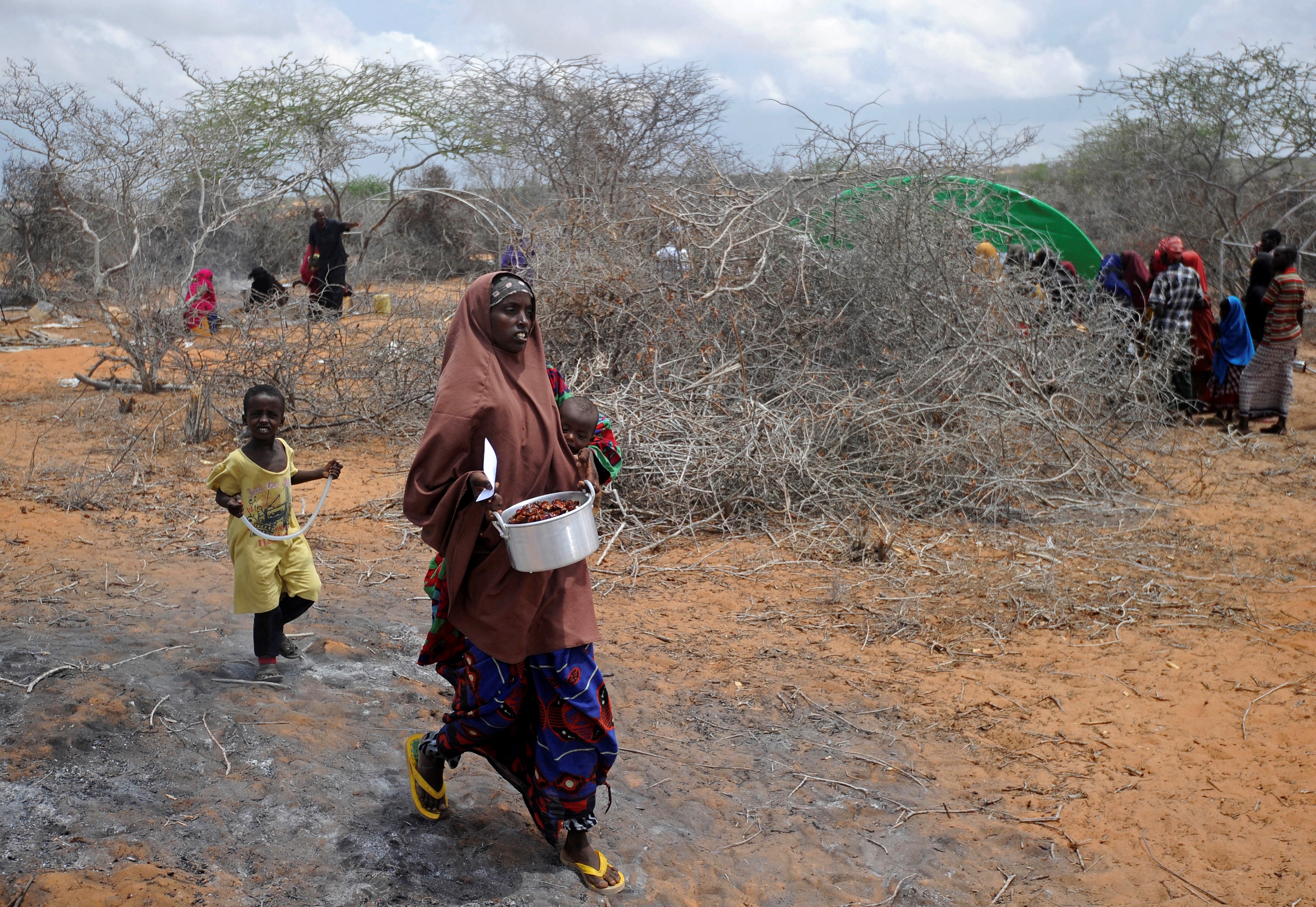For people in the developed world, the arcane language and wonky procedures of the United Nations’ climate change negotiations can obscure the existential threat global warming poses to low-lying islands and countries that permanently teeter on the edge of drought and famine.
In the latest round of talks in Bonn, Germany, negotiators are trying to write the rules for how the Paris climate agreement will be implemented, how the world community will hold itself accountable for meeting the goals, and how progress will be measured.
Since 2009, the countries most exposed to the threat of climate change have banded together as the 48-member Climate Vulnerable Forum. This week in Bonn, the group once again hammered home their concerns.
“Keeping to the 1.5-degree Celsius goal is quite simply a matter of survival,” said Ethiopia’s Debasu Bayleyegn Eyasu. Global warming beyond the limits prescribed in the Paris Agreement, Eyasu said, will threaten irreversible consequences, including crop failure, disease, and flooding.
Without increased climate action, no country can ever be great again.
“Today, East Africa is experiencing a drought made worse by global warming, with more than 13 million people at risk. Just two degrees of warming will double the length of extreme heatwaves and affect vulnerable regions in just a few decades,” Eyasu warned, urging climate negotiators in Bonn to speed up reductions of greenhouse gas emissions and bolster efforts to aid less developed countries.
Last November, in a forceful statement—the Marrakech Communiqué—the CVF said that the world has just one chance to take meaningful action, and it’s the Paris Agreement. This week, during a press conference, representatives from those countries commented on changes in United States policy.
American climate negotiators have not yet said precisely how the U.S. position at these negotiations will change, but have made it clear that all existing policies and commitments are under review, and that there will be no contribution to the Green Climate Fund. President Donald Trump has called climate change a hoax and said during the campaign that he would “cancel” the Paris climate agreement, though more recently his administration has been waffling on whether or not to remain in the accord.
Philippines climate change commissioner Emmanuel de Guzman seemed to be speaking directly to Trump when he said: “Without increased climate action, no country can ever be great again. We fought hard for the Paris Agreement and the 1.5-degree threshold, the threshold for our survival…. Greatness is most apparent with climate action. Failure is not an option.”
Also addressing the new political circumstances in the U.S. indirectly, Costa Rica’s William Calvo said: “We need to explain to countries that this is a matter of survival.”

(Photo: Mohamed Abdiwahab/AFP/Getty Images)
The political statements from the CVF were reinforced at a scientific dialogue during the Bonn talks, where researchers highlighted recent studies showing that Africa, in particular, is dangerously vulnerable to the adverse effects of global warming.
Africa will be affected “very soon and very heavily,” said Jana Sillmann, who studies climate extremes at CICERO, a climate research institute based in Norway. In a recent study, Sillman and colleagues tried to dispel the notion that dangerous climate change can be averted with the two-degree cap on warming. Africa’s geographic position means it’s vulnerable to heatwaves all year round, not just in summer.
The study says dangerous heatwaves in Africa will become widespread and common by 2075. Low-latitude regions have much less variability in day-to-day temperatures than mid-latitude continents like Europe and North America.
Countries around the Horn of Africa and in West Africa are likely to be affected the most. A 2016 study in the journal Environmental Research Letters spells out the risk for Africa in detail: The poorest 20 percent of the world’s population will feel the heat extremes sooner than richer regions, even though the latter regions cumulatively emit the lowest amounts of CO2.
“Heatwaves are not increasing evenly everywhere. They are becoming much more frequent more quickly for countries nearer the equator. These are the poorer nations,” said Erich Fischer, a university researcher at ETH Zurich. “We also know the wealthiest countries will be able to cope with the impacts more easily than poorer nations.”
Recent U.N. reports on world hunger reinforce these findings, showing that up to 50 million people in Africa faced food shortages during the past year. Another U.N. report suggested the cost of adapting to climate change in developing countries could rise to between $280 and $500 billion per year by 2050, a figure that is four to five times greater than previous estimates.





